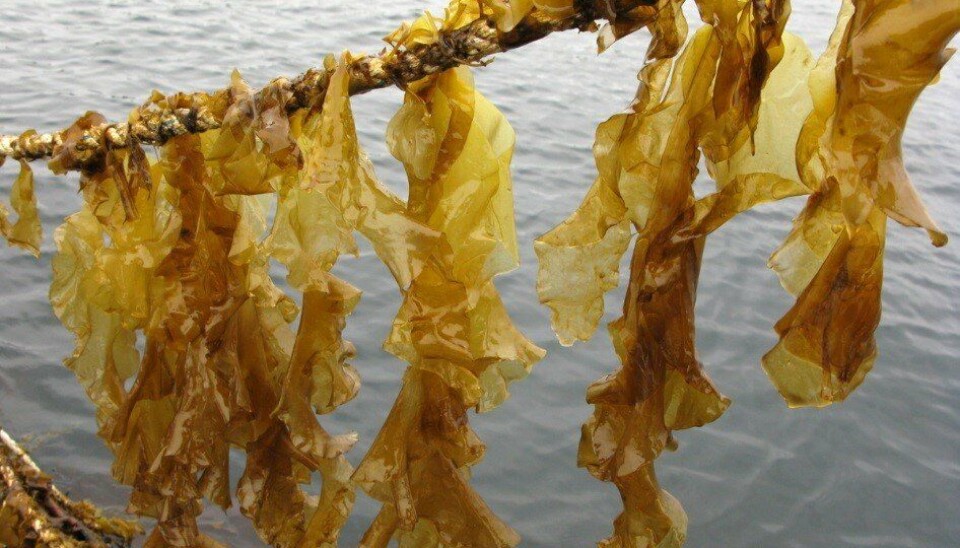
The benefits of seaweed for salmon
Fermented sugar kelp is emerging as an innovative supplement for aquaculture, improving gut health and the immune system of Atlantic salmon.
Researchers in Denmark and Norway conducted two separate growth trials to evaluate the effects of a seaweed supplement, focusing on a closed land-based recirculating aquaculture system (RAS) with fish growing from ∼300–600 grams and an open water net-based trial with fish growing from ∼500–2,500 g.
Both groups were fed a BioMar diet based on its Energy X 200 recipe, with the addition of sugar kelp (Saccharina latissima) after the extrusion of the feed pellet and before the oil coating.
Different inclusion proportions of 0%, 0.5%, 1%, 1.5%, and 2% were used, and after the study, the productive performance during the supplementation period and the intestinal health in the groups treated with the supplement were evaluated.
No negatives
Seaweeds are rich in vitamins, minerals, carbohydrates, and contain a low energy contribution. They also contain iodine, which is beneficial for Atlantic salmon, as they usually exhibit low levels of iodine in muscle tissue.
The feeding period for the RAS group was 54 days and for the seawater group 211 days, after which a comprehensive analysis of the fish was conducted on topics of growth, nutrition, intestinal health, immune response, microbiome, and environment.
The results showed that up to 2% of seaweed in the feed did not have a negative impact on the ket performance indicators related to the growth index of the groups, nor was food intake affected. Iodine levels increased in muscle tissue but remained within safe consumption limits, and heavy metals including cadmium and mercury were not affected, the researchers note.
Intestinal transcriptome analyses revealed enhanced immune responses, and the observed immune activity suggests potential for better disease resistance.
Harmful bacteria reduced
At the intestinal level, there was a reduction in the prevalence of harmful bacteria such as Aliivibrio and a microbiome dominated by the bacteria Mycoplasma, Photobacterium, and Brevinema was observed. From an environmental perspective, the researchers write that it is important to highlight that algae supplementation supports sustainability in aquaculture, as it mitigates eutrophication and contributes to the reduction of the carbon footprint.
In conclusion, the researchers indicate that the contribution of fermented seaweed as a dietary supplement in Atlantic salmon offers a promising complement for improving intestinal health, stabilising the microbiome, and enhancing the immune system, which contributes to better performance of productive parameters and disease resistance.
Read the abstract “A holo-omics analysis shows how sugar kelp can boost gut health in Atlantic salmon” here.













































































